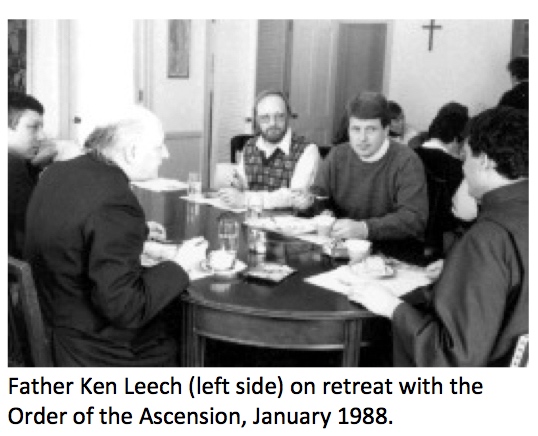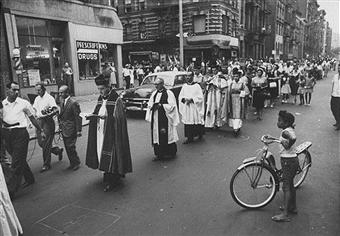True Prayer: the care of the strong Christian - often neglected
 Thursday, February 23, 2017 at 1:16PM
Thursday, February 23, 2017 at 1:16PM Richard Baxter, the seventeenth-century Puritan, saw the “building up of the converted” to be of the greatest importance, and he particularly emphasized the care of the strong Christian, which is so often neglected. – From True Prayer: An Invitation to Christian Spirituality, Kenneth Leech
 Every Monday at Evening Prayer the second reading is from Ken Leech’s True Prayer. Recently the reading included his comment about the importance of nurturing the faith and practice of the “strong Christian.”
Every Monday at Evening Prayer the second reading is from Ken Leech’s True Prayer. Recently the reading included his comment about the importance of nurturing the faith and practice of the “strong Christian.”
So often neglected
The neglect he identifies rises from two factors.
First, most rectors have a weak grasp of the basics of pastoral theology.
Pastoral or practical theology reflects on and informs the pastoral oversight and functional tasks of the Christian community, especially the parish church. The part of the field that is addressed here is:
1) how we understand contemporary society and human need, and
2) from that to shape parish communities in a manner that will effectively address that society and those needs.
3) The concern is the relationship between the parish and its context or external environment.
4) What kind of oversight, structure, and spiritual life do we need in the parish church to effectively form Christians, in our tradition, for this age?
One part of that task is very much about the context. How the church could best serve in Nazi Germany differs from how it might serve in an autocratic but non-totalitarian society, and that in turn would differ from how the church might best serve in a pluralistic democratic society. The formation of members depends, in part, on our assessment of the situation we face.
A second aspect of the task is more about our understanding of how the church functions within its own self-understanding and inherent dynamics. That’s about understanding what is innate in the church because that’s how God calls and creates us and/or because that’s how all human systems operate.
To connect that with Leech’s thinking – all systems depend on the nurturing of their most competent people to maintain the system’s identity and integrity, and to adapt in ways that allow the system to both survive and to be most effective in its setting. You need a critical mass of people to keep the system grounded in its purpose and identity. So, Jesus selected twelve to be that core. Just to work the image a bit – then there were the 70, then 5,000.
Second, most rectors don't know that they need to train the core or how to go about it
In Light the Dark Streets Father Kilmer Myers wrote about his work at Saint Augustine’s parish on the lower East Side in the early 1950s. He wrote this:
One of the main tasks of the parish priest is to train the militant core of his parishioners in such a way that they understand as fully as possible the true nature of a Christian parish. Kilmer Myers
 Kim Myers spent a lot of his time at St. Augustine’s in the mix of social work, liturgical life, and community organizing that is common to most inner city work. He used the skills and knowledge useful in the situation. He also remained grounded in basic Anglican pastoral theology – you enhanced the parish’s life by nurturing the strong Christians among you.
Kim Myers spent a lot of his time at St. Augustine’s in the mix of social work, liturgical life, and community organizing that is common to most inner city work. He used the skills and knowledge useful in the situation. He also remained grounded in basic Anglican pastoral theology – you enhanced the parish’s life by nurturing the strong Christians among you.
In the Living Church of May 8, 1960, the book reviewer noted two books he saw as serious attempts of pastoral theology; works that could help the church address the practical needs of the parish church. One was Fr. Myers' book and the other was Martin Thornton’s Christian Proficiency. The two go well together. Thornton’s book is a resource for Myers' call “to train the militant core.” It’s basic insights still apply to our work today. Thornton’s book is our second reading at Evening Prayer on Thursday nights.
rag+